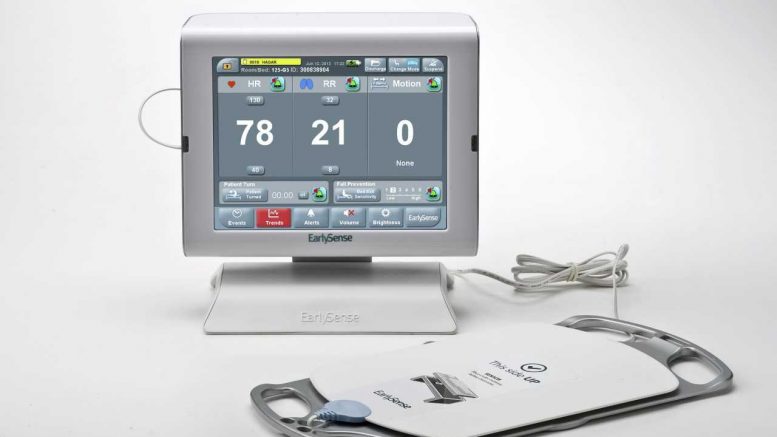Company Expects to Monitor Three Million Patients in Coming Three years – Helping the Industry Save Over $1 Billion
EarlySense, the market leader in contact-free continuous monitoring solutions across the care continuum, announced today that its 10,000 installed systems have surpassed one million patients monitored. With growth stemming from within the company itself, and via partners such as Philips and the world’s leading hospital bed manufacturer, Hill-Rom, EarlySense expects to monitor an additional estimated three million patients in the next three years.
EarlySense’s continuous monitoring sensors are projected to help global medical institutions collectively save more than $3 billion over the next five years, with per bed savings of over $10,000 per year. These savings are realized due to EarlySense assisting health clinicians:
- Shorten length of stay
- Reduce Code Blue cardiac arrests by 86%
- Reduce ICU patient days by 45%/li>
- Reduce Hospital readmissions from post-acute care by 19%
Over the past year, EarlySense helped clinicians save more than 180,000 patient hospital days, assisted in the prevention of over 14,000 pressure ulcers, and also helped hospitals save over three thousand lives.
“Every day, one thousand patients die unnecessarily in hospitals across the United States. Tools like our advanced sensing and data analytics solutions increase the number of patients continuously monitored, assisting clinicians to drastically reduce that difficult statistic,” said Avner Halperin, Co-founder and CEO of EarlySense. “Surpassing one million patients is a tremendous milestone for EarlySense and for healthcare systems worldwide, proving that continuous monitoring is becoming the new standard of care in the healthcare industry. As a result of our partnership with Hill-Rom, we expect this number to grow exponentially, empowering clinicians to save thousands of lives and significantly reducing costs for healthcare systems across the globe.”
Placed under a bed mattress, EarlySense’s patented sensor utilizes artificial intelligence and big data analysis to accurately monitor heart rate, respiratory rate, motion and sleep. The medical technology is FDA cleared, CE-marked and approved in South Korea.

